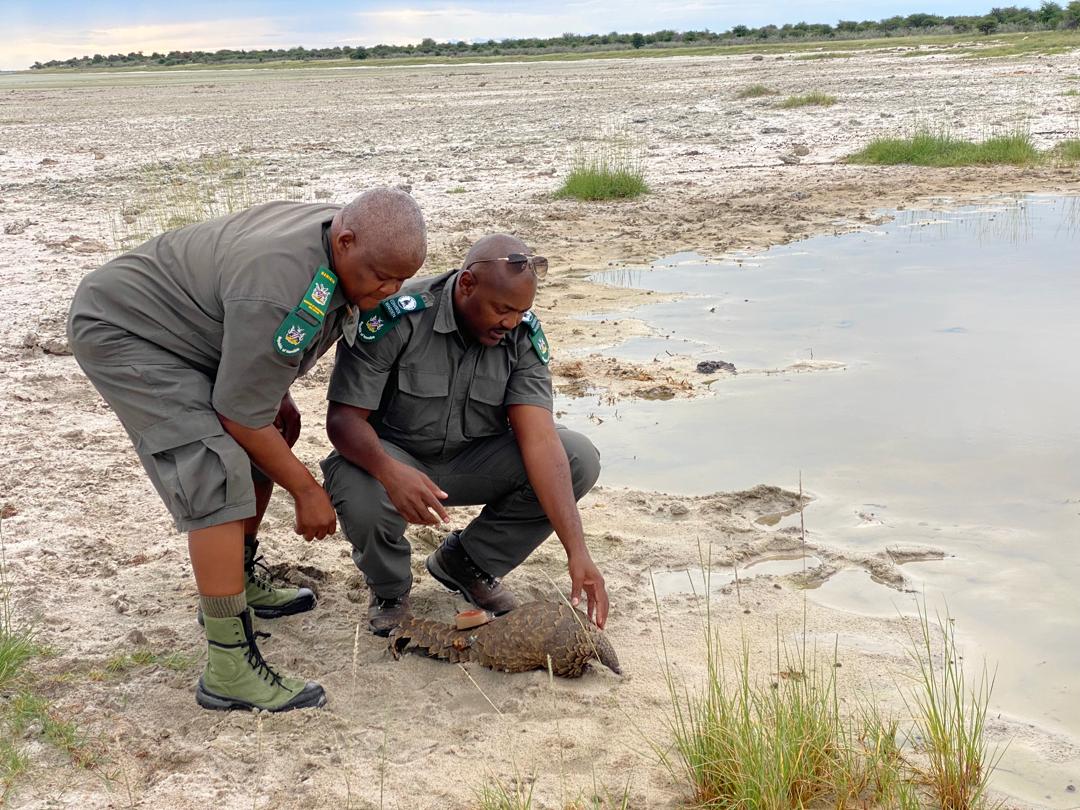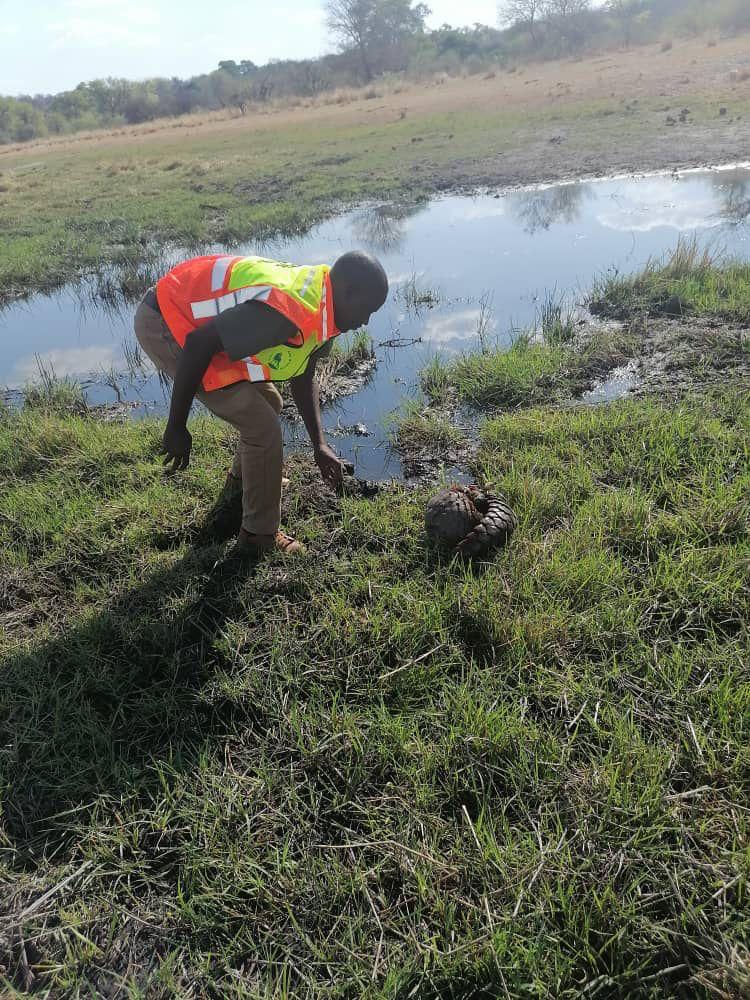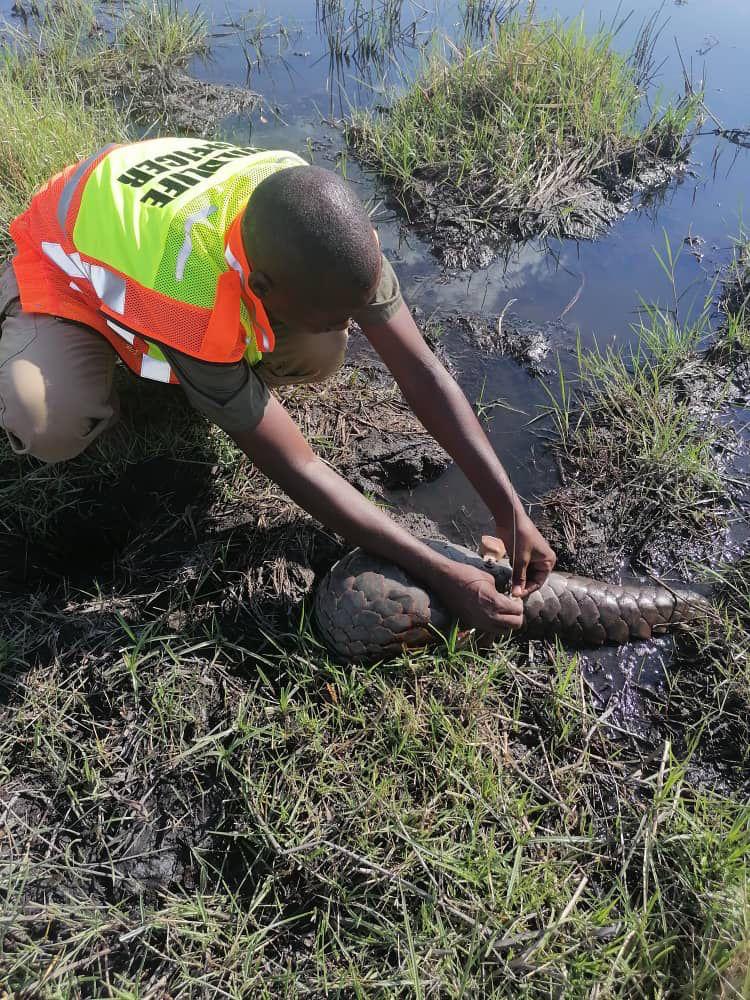Pangolin: Most trafficked mammal
38 suspects arrested in 2023
Pangolin smuggling is causing a steep population decline, putting the species at serious risk of extinction. The main driver for their trafficking is the Asian medicine market.
In 2023, Namibian authorities confiscated 12 live pangolins, 18 pangolin skins and 146 scales, which led to 23 registered cases and the arrest of 38 suspects.
According to the Namibian environment ministry, the species continues to be illegally captured locally and across the globe and remains the most trafficked mammal since 2014.
“Unfortunately, this is causing their population to steeply decline, putting them at risk of extinction. These numbers surpass those of elephants and rhinos combined for this period,” Teofilus Nghitila, the ministry's executive director, said in a media statement.
Regional arrests
The registered criminal cases are predominantly linked to Namibia’s northern regions, with Kavango West notching up the most cases (six), followed by the Kavango East, Ohangwena, Oshana, and Zambezi regions, with three registered cases each.
The central regions cumulatively registered four cases, while only one case was registered in the Kunene Region, according to the ministry.
“Prior to September, there had only been a total of six live animals recovered and 18 skins confiscated from January until August 2023. In association with registered crimes, the total number of animals poached this year between live animals, skins and scales comes to 50, with an additional two foetuses miscarried by live confiscated female pangolins,” Nghitila said.
Red alert
World Pangolin Day is commemorated annually on the third Saturday of February and aims to raise awareness of the plight of pangolins, their significance and the imminent threat they face.
“We should use this day to mobilise each other as Namibians and reject illicit activities related to pangolin poaching. The main driver for their trafficking is Asian medicine markets. Other major threats within Namibia are electrical fencing under 30 cm, drought and climate change, to name a few.”
National efforts
The ministry took the opportunity to also recognise the work done by teams across the country to combat the illegal wildlife trade.
“We are proud of our national treasures, the pangolin being one of them, and we hope the Namibian people also appreciate this species by keeping it safe in the wild.”
The ministry said it is dedicated to the conservation of pangolins and has shown their commitment to the cause through their involvement in the Namibian Pangolin Working Group.
“The group has forged the way for pangolin conservation in southern Africa with many exciting accomplishments to date. We applaud their efforts and those yet to come.”
Kelsey Prediger, founder and director of the Pangolin Conservation and Research Foundation, said it is a privilege to collaborate with experts on the IUCN Pangolin Specialist Group platform. “Pangolins have a brighter future thanks to these experts putting their heads together.”
Criminal offence
The ministry issued a stern reminder to the public that pangolins are a protected species in Namibia and the possession or trafficking of the species is punishable under Namibian laws.
Namibian laws allow for a maximum sentence of up to 25 years imprisonment and a $25 million fine. To date, the heaviest sentence imposed was nine years of direct imprisonment and the largest fine amounted to N$800 000 for the trafficking of a pangolin or its products.
The ministry reminded the public to report any suspected wildlife crime by sending an SMS to the hotline at 55555. All information will be treated seriously and confidentially.
According to the Namibian environment ministry, the species continues to be illegally captured locally and across the globe and remains the most trafficked mammal since 2014.
“Unfortunately, this is causing their population to steeply decline, putting them at risk of extinction. These numbers surpass those of elephants and rhinos combined for this period,” Teofilus Nghitila, the ministry's executive director, said in a media statement.
Regional arrests
The registered criminal cases are predominantly linked to Namibia’s northern regions, with Kavango West notching up the most cases (six), followed by the Kavango East, Ohangwena, Oshana, and Zambezi regions, with three registered cases each.
The central regions cumulatively registered four cases, while only one case was registered in the Kunene Region, according to the ministry.
“Prior to September, there had only been a total of six live animals recovered and 18 skins confiscated from January until August 2023. In association with registered crimes, the total number of animals poached this year between live animals, skins and scales comes to 50, with an additional two foetuses miscarried by live confiscated female pangolins,” Nghitila said.
Red alert
World Pangolin Day is commemorated annually on the third Saturday of February and aims to raise awareness of the plight of pangolins, their significance and the imminent threat they face.
“We should use this day to mobilise each other as Namibians and reject illicit activities related to pangolin poaching. The main driver for their trafficking is Asian medicine markets. Other major threats within Namibia are electrical fencing under 30 cm, drought and climate change, to name a few.”
National efforts
The ministry took the opportunity to also recognise the work done by teams across the country to combat the illegal wildlife trade.
“We are proud of our national treasures, the pangolin being one of them, and we hope the Namibian people also appreciate this species by keeping it safe in the wild.”
The ministry said it is dedicated to the conservation of pangolins and has shown their commitment to the cause through their involvement in the Namibian Pangolin Working Group.
“The group has forged the way for pangolin conservation in southern Africa with many exciting accomplishments to date. We applaud their efforts and those yet to come.”
Kelsey Prediger, founder and director of the Pangolin Conservation and Research Foundation, said it is a privilege to collaborate with experts on the IUCN Pangolin Specialist Group platform. “Pangolins have a brighter future thanks to these experts putting their heads together.”
Criminal offence
The ministry issued a stern reminder to the public that pangolins are a protected species in Namibia and the possession or trafficking of the species is punishable under Namibian laws.
Namibian laws allow for a maximum sentence of up to 25 years imprisonment and a $25 million fine. To date, the heaviest sentence imposed was nine years of direct imprisonment and the largest fine amounted to N$800 000 for the trafficking of a pangolin or its products.
The ministry reminded the public to report any suspected wildlife crime by sending an SMS to the hotline at 55555. All information will be treated seriously and confidentially.








Kommentar
Allgemeine Zeitung
Zu diesem Artikel wurden keine Kommentare hinterlassen